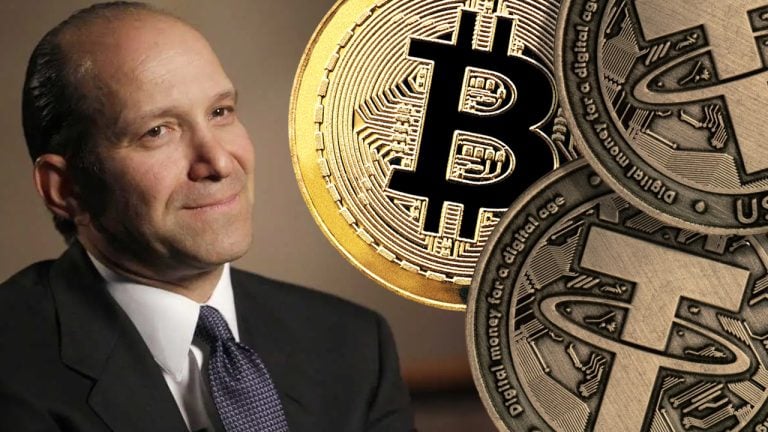Cantor Fitzgerald CEO Foresees Bitcoin Rally at Next Halving, Affirms Tether’s Reserves are Solid
Publikováno: 16.1.2024
 Howard Lutnick, CEO of the renowned financial services company Cantor Fitzgerald, recently shared his insights on bitcoin and tether during an appearance at the World Economic Forum in Davos on Tuesday. Lutnick drew parallels between the fervor around spot gold exchange-traded funds (ETFs) and the anticipated trajectory of bitcoin. Howard Lutnick Projects Bitcoin Rally Post-Halving, […]
Howard Lutnick, CEO of the renowned financial services company Cantor Fitzgerald, recently shared his insights on bitcoin and tether during an appearance at the World Economic Forum in Davos on Tuesday. Lutnick drew parallels between the fervor around spot gold exchange-traded funds (ETFs) and the anticipated trajectory of bitcoin. Howard Lutnick Projects Bitcoin Rally Post-Halving, […]

Howard Lutnick, CEO of the renowned financial services company Cantor Fitzgerald, recently shared his insights on bitcoin and tether during an appearance at the World Economic Forum in Davos on Tuesday. Lutnick drew parallels between the fervor around spot gold exchange-traded funds (ETFs) and the anticipated trajectory of bitcoin.
Howard Lutnick Projects Bitcoin Rally Post-Halving, Validates Tether’s Reserve Strength
The Cantor Fitzgerald chief Howard Lutnick has observed that bitcoin (BTC) experienced a significant surge and is now maintaining a stable performance. However, Lutnick anticipates a notable upswing in bitcoin’s value with the onset of the halving event.
“Bitcoin ran up and it’s gonna kind of stay steady. But when the halving comes, it’s going to start to rally again — so bitcoin I think will grow,” he asserted to Bloomberg at the World Economic Forum event in Davos.
Shifting the focus to tether (USDT), the foremost stablecoin in terms of market capitalization, currently valued at $94.8 billion and witnessing a 4.6% increase in supply over the past month, Lutnick offered insights into Cantor’s involvement with the stablecoin issuer.
He underscored that Cantor plays a significant role in managing numerous assets for Tether and expressed confidence in the company’s financial standing. Lutnick concluded:
From what we’ve seen, and we did a lot of work, they have the money.
Lutnick’s remarks stand in stark contrast to the skepticism surrounding Tether’s reserves, a topic that has been a point of contention among critics. Highlighting USDT’s substantial adoption, he pointed out its pronounced presence in particular economies, notably Turkey and several Latin American nations. Despite this widespread use, Lutnick acknowledged the limited necessity for fiat-linked tokens in the United States, conceding, “It’s not an American thing.”
What do you think about Lutnick’s statements in Davos? Let us know what you think about this subject in the comments section below.